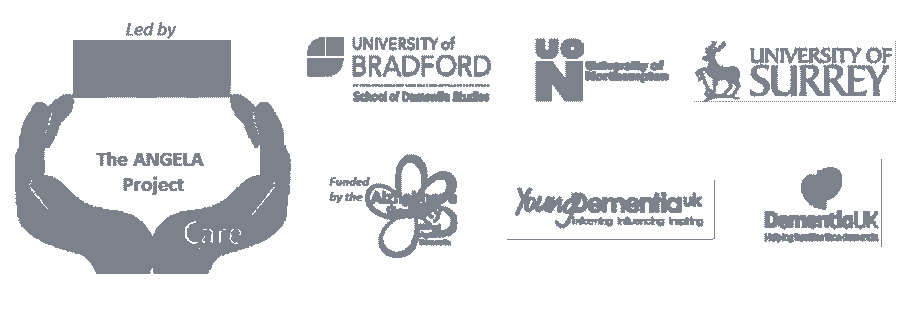The estimated prevalence of dementia in 2013 was that there are 815,827 people with dementia in the UK, of whom 773,502 were aged 65 years or over. This represents one in every 79 (1.3%) of the entire UK population, and 1 in every 14 of the population aged 65 years and over. It is estimated that there are now 42,325 people with early-onset dementia (under the age of 65 years) in the UK. It would be unthinkable not to screen, diagnose and treat people with cancer, yet dementia is still not universally recognised, socially understood or professionally managed through adequate care and support. Reasons vary for low diagnosis rates in the UK; some families are reluctant to come forward for an early diagnosis because of the perceived social stigma attached to dementia or for fear of what lies ahead or early symptoms of dementia can be overlooked by health and care professionals by attributing short term memory loss to old age, UTI’s, stress, bereavement or other medical conditions. The progressive nature of the condition and the significant funding gap may also contribute to healthcare professionals questioning the benefits of early diagnosis.
The estimated prevalence of dementia in 2013 was that there are 815,827 people with dementia in the UK, of whom 773,502 were aged 65 years or over. This represents one in every 79 (1.3%) of the entire UK population, and 1 in every 14 of the population aged 65 years and over. It is estimated that there are now 42,325 people with early-onset dementia (under the age of 65 years) in the UK. It would be unthinkable not to screen, diagnose and treat people with cancer, yet dementia is still not universally recognised, socially understood or professionally managed through adequate care and support. Reasons vary for low diagnosis rates in the UK; some families are reluctant to come forward for an early diagnosis because of the perceived social stigma attached to dementia or for fear of what lies ahead or early symptoms of dementia can be overlooked by health and care professionals by attributing short term memory loss to old age, UTI’s, stress, bereavement or other medical conditions. The progressive nature of the condition and the significant funding gap may also contribute to healthcare professionals questioning the benefits of early diagnosis.
However, early diagnosis should be seen as a positive first step in managing this progressive disease. We all strive for independence and a good quality of life that enables us to stay in control of our own day to day activities. According to a recent survey conducted by the Alzheimer’s Society, 61% of people with dementia felt anxious or depressed recently, 40% felt lonely and 34% didn’t feel part of their community. There is no doubt that a diagnosis of dementia will generate negative emotions and a feeling of distress which are not unlike those associated with other neuro-degenerative diseases but once it has been explained and understood by medical experts, people can then take a proactive approach to its management and control. The process of assessment and diagnosis in dementia care will ensure that the person receives a full screening for conditions that may impact on their cognition, mental and physical well-being. The person and their family will then have time together to plan for the future. This should include managing their health and thinking about the care and support that they will need in years to come. Recent developments in dementia research which enable early diagnosis include biomarkers for early detection, brain and neuro imaging, cerebral spinal fluid protein analysis and genetic risk profiling. (To read more about this, click here.)
A preliminary conversation with a home care provider such as The Good Care Group can be a useful first step in understanding the care options available, the financial and practical support that may be provided by local authorities and NHS continuing care and an idea of the process and estimated cost. Sorting out financial affairs, housing and activities of daily living are some of the practical things that can be discussed with family and friends and helps to prevent anxiety. It is recognised that a diagnosis of dementia can also impact on relationships and family life. Communication issues and potential conflict in previously close relationships can cause pain and anguish for the person with dementia who is struggling with symptoms like short term memory loss, perceptual changes, and visual spatial difficulties. The family can also benefit from increasing their knowledge and skills in dementia to help them understand how they can better interact and communicate with someone who has dementia.
Penny Hibberd, the Specialist Nurse at The Good Care Group, provides support and advice to families in complex health and care situations, leading to a calmer and more controlled environment for the person with dementia. The Good Care Group can provide support and advice when choosing care in the home and provides a fully managed live in care service ranging from short respite periods of a couple of weeks to permanent 24 hour live in care. Engaging help and care at an early stage can maintain well-being, reduce the risk of hospital admission and family crises.
For more information on this or any of our other specialist services, please contact us on 020 3728 7577



